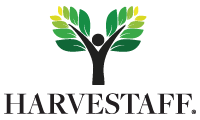Guide to Creating an Effective Resume
After working for a long time at the same company, beginning a new career path and looking for that first experience, or finding yourself somewhere in between, it is important to review your resume in order to build it or simply update it. Our team has come together to offer some advice and a few pointers to help you with your resume!
SUMMARY
A concise summary of 3-6 bullet points describing your experience and skills. Hiring managers prefer to see evidence of career advancement.
Avoid using subjective phrases like "passionate worker."
In 3-6 bullets, try to include everything while showcasing your entire resume.
TECHNICAL SKILLS
The majority of work done today is done with computers, machines, and so on. It is critical that you are able to communicate which applications you are proficient in and comfortable using. Make your request as specific as possible.
Don't just list "Excel" as a skill. Add something that relates to your level of expertise, such as "Excel - Pivot Tables, VLOOKUPs" or "Superuser - SAP R/3."
EDUCATION & CERTIFICATIONS, TRAINING, ETC.
If you have a degree, make sure to specify what type of degree it is. It is not sufficient to state "Degree - Business." Is your bachelor's or master's degree a BA or a BS? What was your field of study's major? The best way to demonstrate this is to use the phrase "BA - Accounting" or something similar. Include the year it was earned as well as the full name of the institution from which it was earned.
For certifications, include the name of the certifying body, the year it was earned, and whether or not it will expire (if applicable).
EXPERIENCE
Make sure to include the names of your employers as well as your job titles. Always include both the month/year you started and the month/year you left a position.
Experiences should be bulleted and include concise statements about responsibilities and achievements. Be specific but succinct. Unless the job requires more, only include the last 5-6 years of experience.
PACKAGING
Don't use fancy fonts, borders, lines, or anything else. The only exception is if you are applying for a job that requires creativity, such as graphic design or another artistic role.
Your resume should be "squeaky clean" and simple to read. Keywords relevant to the jobs you're applying for should also be included. There is no such thing as a "one-size-fits-all resume." Prepare to make changes to it as you apply for different jobs.
Make sure to proofread your resume before submitting it. Spelling and grammar errors are a surefire way to end up in the Recycle Bin.
